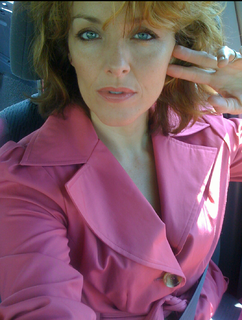A Quote by Paul Laffoley
In other words, [ H.P. Lovecraft] was areligious, asexual, neurasthenic, he just didn't want to react to the world. Like Virginia Woolf, who considered religion the ultimate obscenity.
Related Quotes
Think of Virginia Woolf, 'A Room of One's Own' - that's what women have always needed under patriarchy and can't be creative without. They took away my classroom and my status to teach, and now they have taken away my office, and all of it is giving the message that Virginia Woolf and I are losing what I call 'womenspace.'
The notion of the writer as a kind of sociological sample of a community is ludicrous. Even worse is the notion that writers should provide an example of how to live. Virginia Woolf ended her life by putting a rock in her sweater one day and walking into a lake. She is not a model of how I want to live my life. On the other hand, the bravery of her syntax, of her sentences, written during her deepest depression, is a kind of example for me. But I do not want to become Virginia Woolf. That is not why I read her.
Now, we know this is what [H.P.] Lovecraft was into. Because he kept talking about how he wasn't interested in religion. In a heaven state there is no religion, meaning that you're seeing the whole thing ... I mean, to worship something means that it's something beyond you, right? In other words, it's not being revealed to you.
[H.P.Lovecraft] is thrust into some kind of outer space realm, like here [pointing toward the painting in progress]. In other words, he's recognized he's gone through R'lyeh, the Sunken City of R'lyeh, and then Cthulhu, the extraterrestrial, calls his band of worshippers home to recognize him as the anti-christ. This is all in The Necronomicon, something Lovecraft actually did make up.
Philip Glass, like [Virginia] Woolf, is more interested in that which continues than he is in that which begins, climaxes, and ends... Glass and Woolf have both broken out of the traditional realm of the story, whether literary or musical, in favor of something more meditative, less neatly delineated, and more true to life. For me, Glass [finds] in three repeated notes something of [a] rapture of sameness.




























